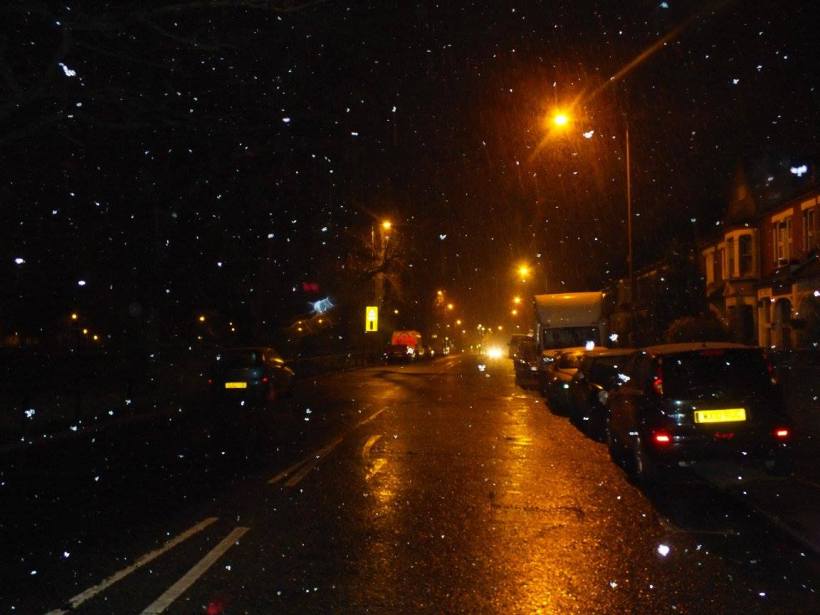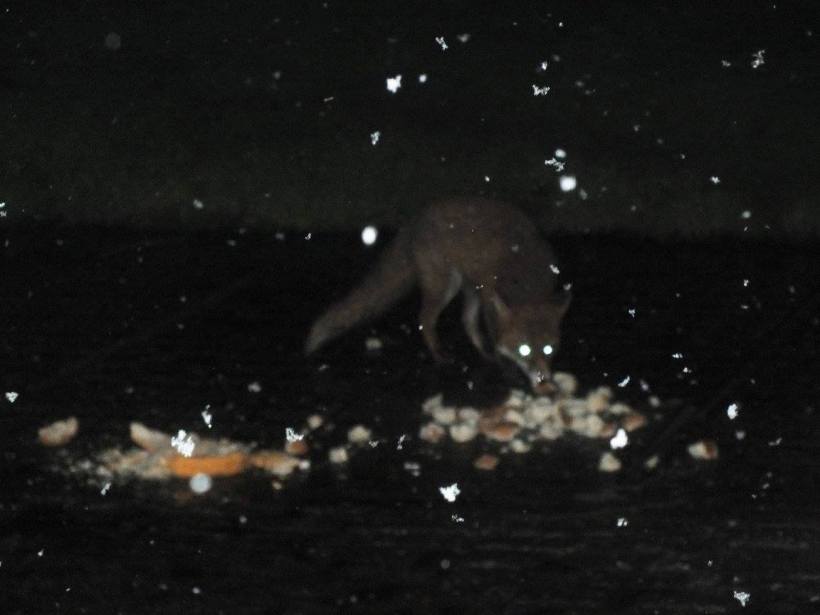
I was walking home from a night out, feeling gloomy and wishing I’d got a cab, when I noticed little white flecks in my hair. Snow!
I felt a sudden urgent need to tell someone.
‘IT’S SNOWING’, I write to my friend Marta on facebook, and then see that she hasn’t been online for 5 hours.
The white flecks suddenly intensify, falling in thick, rapid flurries that cling to my hair and dampen my clothes. I stop, mesmerised, watching snowflake after snowflake die on the wet road.
The streets are deserted, orange-lit by street lamps. My own private snow.
I wonder if everyone will wake to an inch-thick layer of white in the morning, or whether it will peter out, a fleeting mini-blizzard that was just for me.
I take my camera out and snap a picture, desperate to acknowledge the moment, forgetting that I’m in a woman alone in Plumstead, in the middle of the night, with a very expensive, very big black camera.
I trudge on, this glaring invite to muggers still in my hand, my shoes increasingly wet, passing the black expanse of Plumstead common.
A movement spotted out of the corner of my eye and I suddenly snap to awareness, the magic of the moment receding and the camera suddenly feeling very obvious in my hand. But it’s just a fox, eyeing me suspiciously and eating bread left out for the birds.
I felt a sudden urgent need to tell someone.
‘IT’S SNOWING’, I write to my friend Marta on facebook, and then see that she hasn’t been online for 5 hours.
The white flecks suddenly intensify, falling in thick, rapid flurries that cling to my hair and dampen my clothes. I stop, mesmerised, watching snowflake after snowflake die on the wet road.
The streets are deserted, orange-lit by street lamps. My own private snow.
I wonder if everyone will wake to an inch-thick layer of white in the morning, or whether it will peter out, a fleeting mini-blizzard that was just for me.
I take my camera out and snap a picture, desperate to acknowledge the moment, forgetting that I’m in a woman alone in Plumstead, in the middle of the night, with a very expensive, very big black camera.
I trudge on, this glaring invite to muggers still in my hand, my shoes increasingly wet, passing the black expanse of Plumstead common.
A movement spotted out of the corner of my eye and I suddenly snap to awareness, the magic of the moment receding and the camera suddenly feeling very obvious in my hand. But it’s just a fox, eyeing me suspiciously and eating bread left out for the birds.

In the half glow of the street-lamps I see snowflakes collecting on the tips of its’ orange fur, not penetrating the thick coat..
At least someone else is here to see the snow, I think, as it hurries off with a soggy mouthful of crusts.






